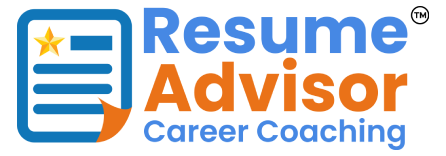
Starting a new job can be both exciting and nerve-wracking. One of the biggest questions on every professional’s mind is: "How long does it take to learn a new job?"
The answer depends on several factors, including:
- The complexity of the role
- Your prior experience
- The onboarding process
- Your learning strategies
According to Resume Advisor, most professionals take 3 to 6 months to feel fully competent in a new role. However, some high-skill positions may require up to a year for full mastery.
In this guide, we’ll break down:
- The average learning curve for different jobs
- Expert tips to speed up the process
- How Resume Advisor can help you transition smoothly
- Common challenges and how to overcome them
Let’s dive in!
Understanding the Learning Curve for New Jobs
Research shows that employees typically go through four key phases when learning a new job:
1. The First 30 Days: Orientation & Basics
- Focus: Understanding company culture, tools, and processes.
- Challenge: Information overload.
- Resume Advisor Tip: Take notes, ask questions, and shadow colleagues.
2. Months 1-3: Building Competence
- Focus: Gaining hands-on experience and improving efficiency.
- Challenge: Feeling overwhelmed by responsibilities.
- Resume Advisor Tip: Set small, achievable goals to track progress.
3. Months 3-6: Gaining Confidence
- Focus: Working independently and contributing meaningfully.
- Challenge: Imposter syndrome may arise.
- Resume Advisor Tip: Seek feedback to validate your progress.
4. 6+ Months: Mastery & Growth
- Focus: Optimizing performance and taking on more responsibilities.
- Challenge: Staying motivated long-term.
- Resume Advisor Tip: Explore upskilling opportunities to advance further.
How Long Does It Take to Learn a New Job?
1. Entry-Level Jobs (1-3 Months)
- Examples: Retail, customer service, administrative roles.
- Why? These roles often have structured training programs.
2. Mid-Career Professional Roles (3-6 Months)
- Examples: Marketing, HR, IT support.
- Why? Requires balancing technical skills and company-specific processes.
3. High-Skill & Leadership Roles (6-12 Months)
- Examples: Software engineering, management, finance.
- Why? Complex responsibilities and strategic decision-making take time.
"The key is patience—competence doesn’t happen overnight," says Jonathan from Resume Advisor.
5 Expert Tips to Learn a New Job Faster
1. Ask Questions Early & Often
- Don’t hesitate to clarify doubts—better now than later.
2. Take Detailed Notes
- Document processes to avoid repeating mistakes.
3. Find a Mentor
- Learn from someone experienced in the role.
4. Practice Outside Work (If Possible)
- Use online courses (e.g., Coursera, LinkedIn Learning) to upskill.
5. Set Weekly Progress Goals
- Example: "Master the CRM system by Week 2."
How Resume Advisor Can Help You Adapt Faster
Transitioning into a new job is smoother with the right support. Resume Advisor offers:
· Interview Coaching – Prepares you to ask the right questions about training.
· Job Search Strategy – Helps you find roles that match your skills.
· Career Coaching – Guides you through onboarding challenges.
"A strong start leads to long-term success," says Jonathan, founder of Resume Advisor.
Common Challenges & How to Overcome Them
|
Challenge |
Solution |
|
Feeling Lost in the First Week |
Schedule 1:1s with your manager. |
|
Struggling with New Software |
Request additional training sessions. |
|
Imposter Syndrome |
Track small wins to build confidence. |
Final Thoughts
Learning a new job takes time—anywhere from 1 month to 1 year, depending on the role. The key is to stay proactive, seek help when needed, and trust the process.
For personalized career guidance, Resume Advisor provides tailored coaching to help you succeed faster.
Ready to excel in your new role? Apply these strategies today!

